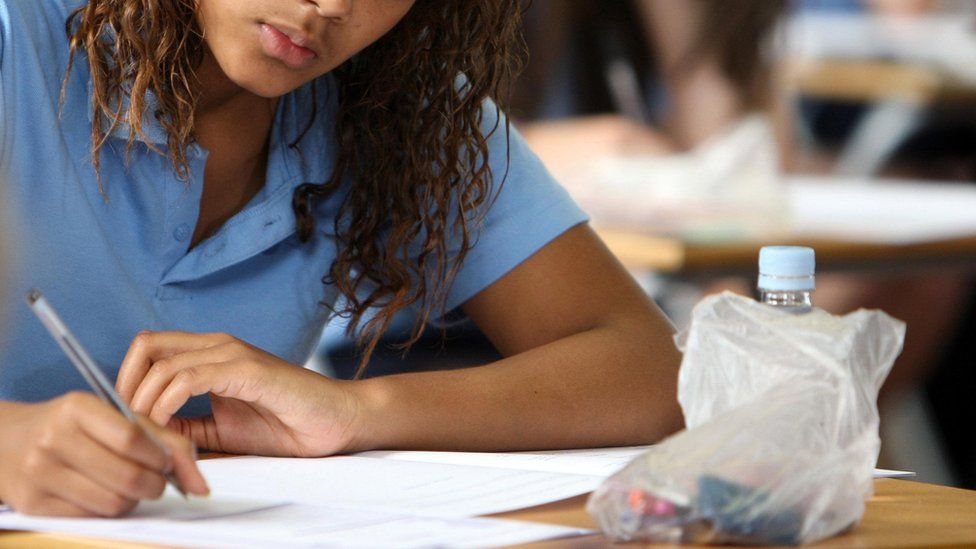Foster care 'boosts vulnerable children's grades'
- Published

Children in care or with foster families did better in exams, say the researchers
Children in foster care make better educational progress than vulnerable children who remain with troubled families, research suggests.
Oxford and Bristol university researchers calculated that the difference amounted to at least six GCSE grades at 16.
However, the results of students in both groups were not as good as pupils in the general population.
The GCSE results of 640,000 teenagers in England in 2013 were examined.
Around 14,000 of these were deemed to be "in need" but were still living with their birth parents, supported by social workers, and their results were not as good as the total of just over 6,000 pupils who were in care.
Children did better at school "once they felt safe and secure", said Prof David Berridge of Bristol University.
The longer that vulnerable children remain in foster care the better they do, the researchers add.
'They mattered'
At GCSE, 16-year-olds who had spent at least a year in foster care achieved better grades, equivalent to at least six grades overall, than children in other forms of care.
These differences persisted even after differences in the number of children with special educational needs in each of the groups were factored in, say the researchers.
In interviews, foster children told the researchers that escaping abuse, hunger and intimidation - and gaining encouragement, discipline and the sense of being cared about, made the biggest difference.
"Young people told us that coming into care had benefitted them educationally," said Prof Berridge.
"They said they could only do well at school once they felt safe and secure, that they mattered to someone and that their birth families were also being supported. If all this was in place then teachers could help them make progress.
"Carers, teachers and social workers need to work together to achieve this."
The research suggested the care system acted as a protective factor educationally - countering theories that going into care could be detrimental, he added.
In particular, a stable environment helps limit absences from school, another important factor, say the researchers.
The study, funded by the Nuffield Foundation, found pupils in care dropped at least two GCSE grades for every 5% of classes missed.
Damaging moves
Prof Judy Sebba, director of Oxford University's Rees Centre for Research in Fostering and Education, said the findings showed frequent changes of school also damaged educational attainment.
"We believe such moves should be avoided, particularly in the two years leading up to GCSE exams," said Prof Sebba.
Debbie Barnes, of the Association of Directors of Children's Services, described the report as "an invaluable part of helping us to better understand the experiences of these vulnerable children and to make sure that both the education and care system is built to meet their individual needs".
Children's minister Edward Timpson said it bore out his own experience of growing up with foster brothers and sisters.
"I've seen first-hand just how education coupled with a stable home environment can transform the lives and futures of some of our most vulnerable children."
Mr Timpson said recent government rule changes would allow foster children to remain with their families until 21, while fostering was now recognised as a placement in its own right "providing young people with greater stability as they prepare for independence and adult life".
- Published30 October 2015
- Published21 September 2015
- Published8 September 2015